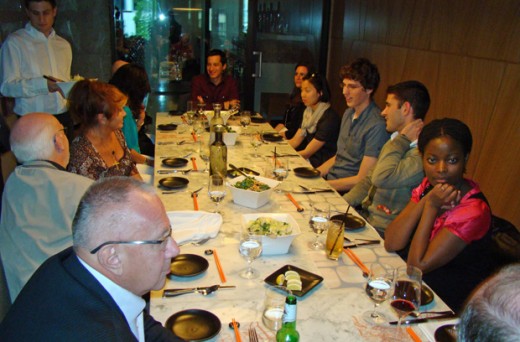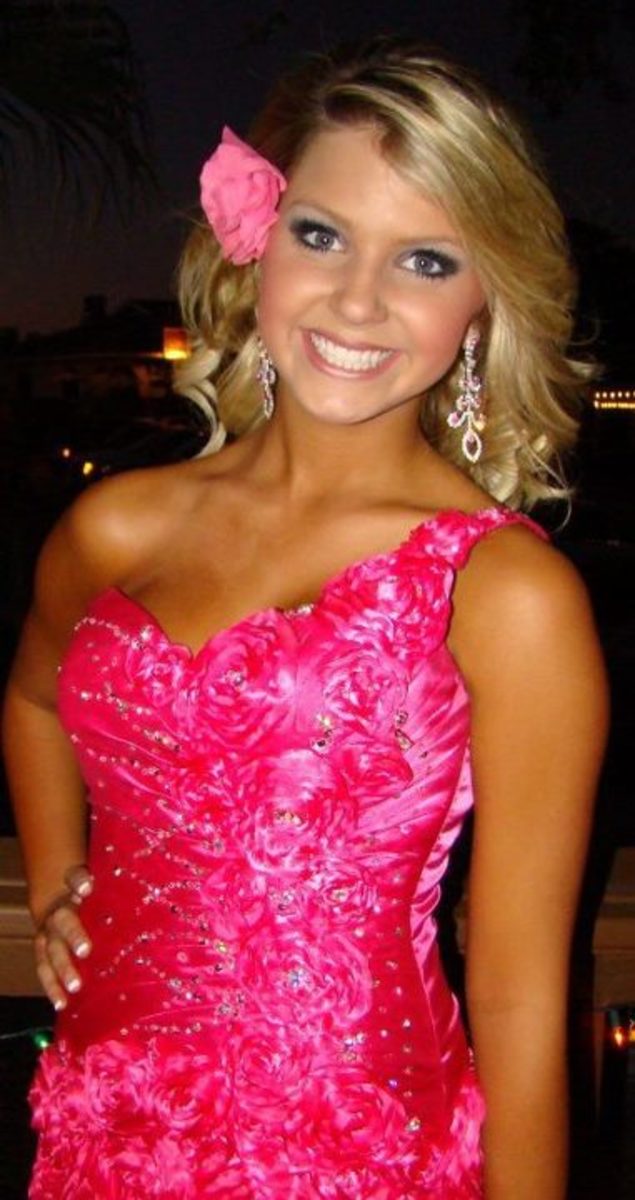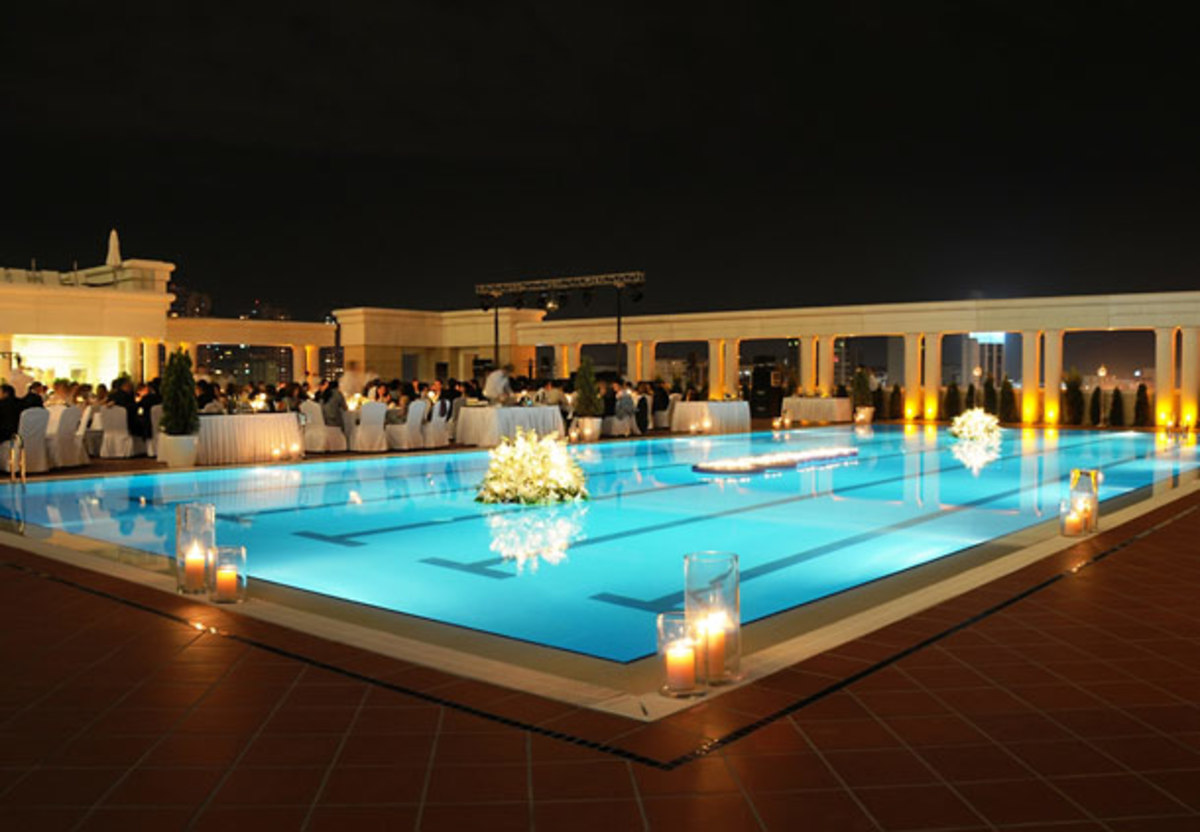Make Your Next Academic Dinner an A+ Event

Whether you are hosting an academic awards show on behalf of your department or need to help plan a conference, it’s important that you treat the event with a special dignity. While academic symposiums and gatherings are often open to a scholars at all levels of their careers, many of the scholars who attend these events are some of the most prominent scholars in their respective fields. These events can involve an exchange of ideas or serve to reward particular scholars for their accomplishments, but they should all be regarded as important events.
Education is a lifelong pursuit, but you probably won’t need to plan an elaborate event for students below grade nine. For this reason, I’ve compiled suggestions for three tiers of education—high school, college, and faculty events.
High School Events
High school students who are involved in extracurricular activities or who belong to the National Honor Society deserve to be honored for their achievements. Not only does it recognize their hard work, it also encourages them to continue in their pursuits. But there are a lot of formal events in high school. From proms to graduation dinners, there are a great number of moments to celebrate in style, right down to the fine linens and tablecloths
Whether you are a parent or a teacher, you should try to involve the student s in the planning process. They are the ones being honored, after all, and they’ve already proven themselves to be responsible. Teenagers routinely help plan for proms, pep rallies, yearbook distribution, and other events, so you can trust them to browse through various rentals for academic events or to discuss their preferred caterer. You might want to keep in mind that a lot of teenagers don’t exactly have refined palates. They are still at the age where they can eat a diet of French fries and potato chips without gaining an ounce, after all. So find a good restaurant, but stay away from anything too experimental. Also check for allergies and religious dietary restrictions in case you need to accommodate specific attendees.
You should let the students discuss a number of factors, such as the color palette, and what that means in terms of the flowers, vases, lighting, table covers and linens. If the event involves students from multiple schools, ask students to create posters or centerpieces that reflect school pride. Often, students in extracurricular activities will have team names and will have designed their own graphics to express themselves, so this is another option, depending on the reason for the event.
Be sure to discuss appropriate attire, as not all schools have dress codes. Some events like proms require formal attire; for others, simple eveningwear will suffice. If the event requires the use of flatware and linen napkins, advise students on proper table etiquette. Dinners have become increasingly casual, even in formal dining restaurants. Not all students will know, for example, the proper way to butter bread or to place the cloth napkins in their laps after the host does so. These are hardly egregious violations of etiquette, but it’s good to know the rules before breaking them.
College Events
Though college students are a bit more mature than their high school counterparts (depending on the student in question, of course), they often don’t have as many opportunities to attend formal, sit-down events. Students who make the Dean’s List at some schools are invited to formal events every semester or so, but as schools cut their budgets down, these events are few and far between. In most cases, individual clubs, sororities, fraternities, and academic societies need to organize their own events. There are a few department-sponsored gatherings, as well.
Whether you are a student or a university employee, you should recognize a few truths about the nature of academia before setting a schedule. First, that students and professors alike are incredibly busy. Between traveling to different symposiums to teaching courses to writing letters of recommendation to conducting research for their next publication, professors rarely have a free moment in the midst of the academic semester. Be sure to set the date far in advance so you can arrange for any necessary paperwork or rentals. In many cases, it is best to host larger events toward the beginning or the end of the semester. Students often need to travel home during breaks, so a Thursday or Friday event before a school-wide break would be ideal.
If this is an open-invite departmental party, an email and flyers should be sufficient. If it is something a bit more exclusive, like a gathering of all Phi Alpha Theta members to honor a recent publication, you should send out an email only to those students who were invited, put notes in any professors’ mailboxes, and post flyers noting that it is a members-only event.
You should generally host such events on-campus, or at a nearby establishment. Not all students have vehicles, so introduce a carpooling sign-up list if you are hosting the event off-campus. Depending on the size of the event, you may need A/V equipment for speeches. This is especially the case if you are hosting a visiting professor who wants to read excerpts from the latest publication. Check the acoustics of the room beforehand by sitting at multiple tables toward the back to make sure the sound covers all corners of the room. Also remember that porous materials, like any paper or cloth cover you’ve placed on the tables, will absorb sound. This isn’t a bad thing, however. It will reduce echo and in most cases make for a more rewarding listening experience, provided the speakers are adequate.
As far as food goes, you should keep it relatively simple. A buffet would be ideal, whether it is a wine-and-cheese event or a dinner.
Faculty Events
Most faculty get-togethers consist of staff meetings, venting sessions, and differences in opinion expressed with varying degrees of tact. So when the time comes to host a formal get-together, it comes with more than the usual amount of celebration. These can include dinners to honor faculty members of note (recent grant recipients, for example), symposiums, casual get-togethers to welcome new faculty members, end-of-semester parties, and, rarely, events that gather all professors of the sciences or the arts. Other events include conferences, which can take several days and often include domestic and international scholars.
In other words, your part in planning a faculty event can range from buying a veggie plate to booking hotel rooms and renting event essentials like linens and furniture. However, because hosting a departmental party is fairly straightforward, I’ll focus on larger events.
Planning a formal event like a conference or symposium will be more labor intensive, so I recommend that you being the planning process at least six months in advance, but go for a year if possible. This will give you time to contact potential speakers to make sure they are available, as well as give them special treatment if necessary. Whether you are hosting the event at a certain campus or in a commercial venue like a hotel ballroom, you should do your best to reduce the costs for participants. Most hotels will reduce their rental fees for event participants. Ideally, you will be able to host the event in your own city. If this isn’t the case, contact a colleague who lives near the venue to ensure the venue is able to accommodate a group of this size. Check for A/V equipment as well, since most speakers will want to use PowerPoint.
You should invite non-speaking participants as soon as possible. If you are selling tickets, make sure your website is fully functional; participants should be able to purchase tickets in groups or purchase tickets for certain speakers in the case of simultaneous presentations. If your budget allows, make mobile ticketing an option available.
While conference generally consist of presentations and conversations, you may wish to host a few dining events as well. If this is the case, you can either keep the decorations simple or add details indicative of the event. Obviously, this isn’t a wedding, so you don’t need to break the bank on flowers. But you can still rent table covers in the color of your organization’s logo, or use ball-and-stick models as centerpieces if you are hosting chemists, or include poetry on name cards if you are hosting members of the Modern Language Institute. So many academic conventions are rather dry, so members will appreciate the extra effort.






